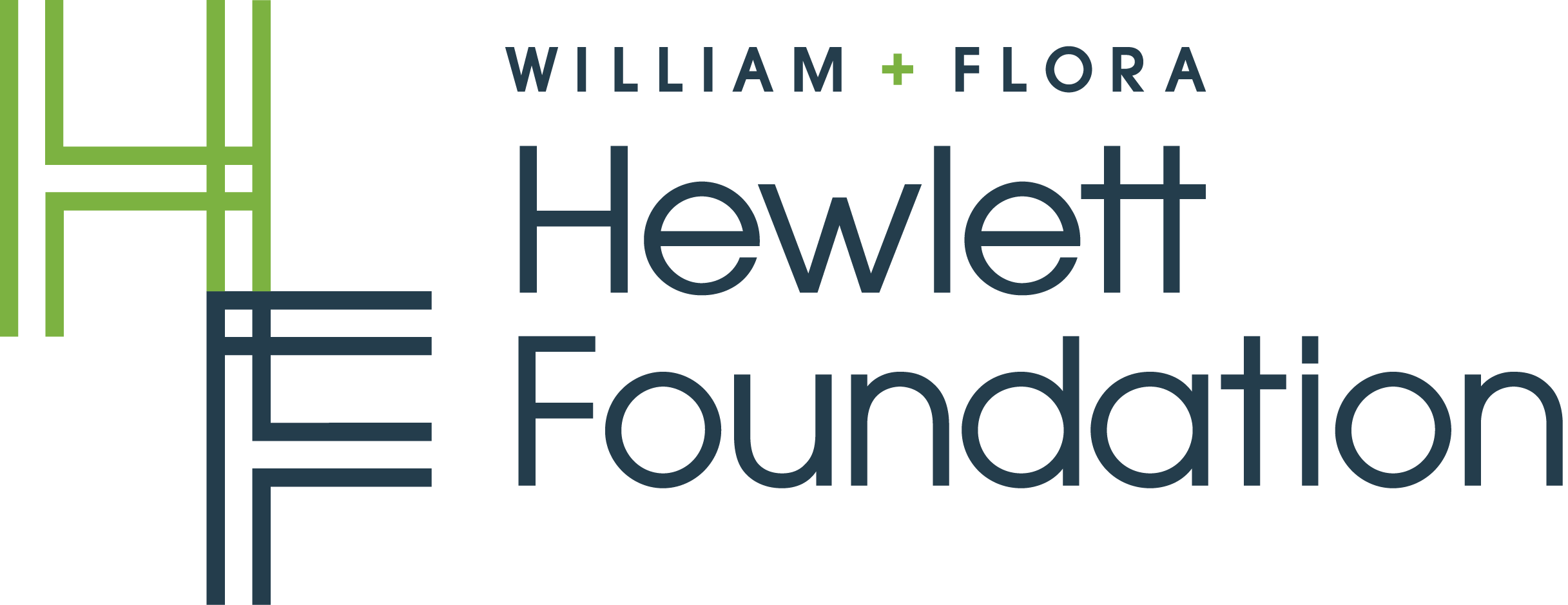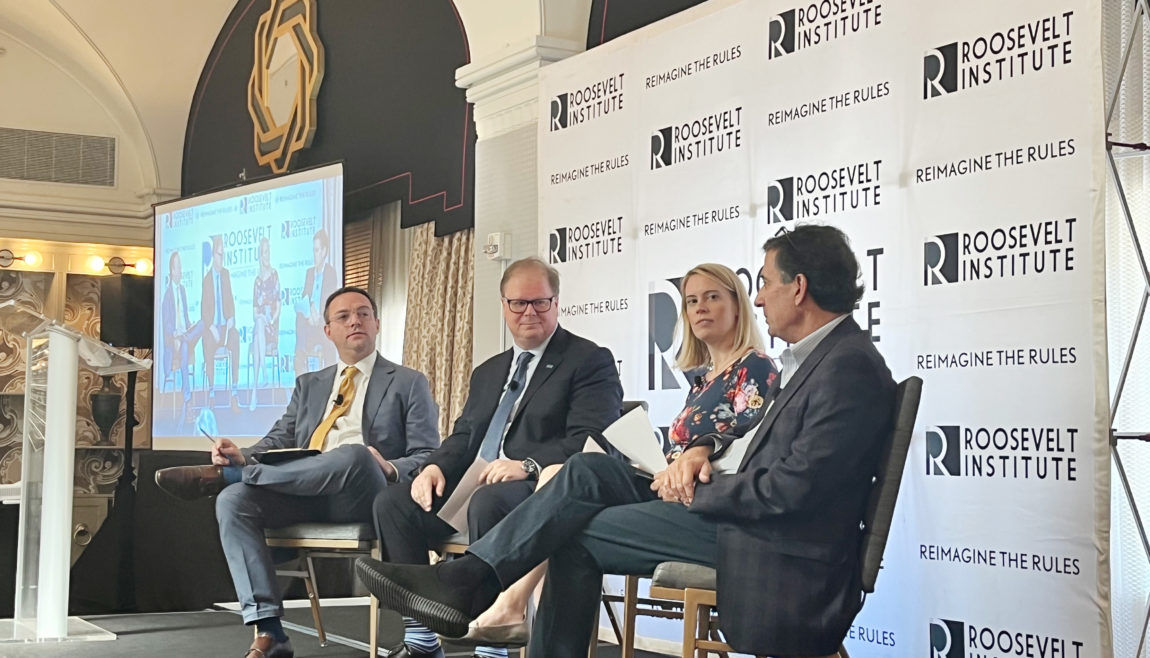
Industrial policy is having a moment. In the last 20 months, the US has made historic investments in the supply side of the economy, from legislation like the Inflation Reduction Act and the CHIPS and Science Act, to executive branch initiatives like supply chain resilience reviews and deployment of the Defense Production Act.
While championed under different names—a liberalism that builds (Ezra Klein, New York Times), a modern American industrial strategy (Brian Deese, National Economic Council), a new productivist paradigm (Dani Rodrik, Harvard University)—industrial policy is on the rise in the US because it meets the scale of our challenges: powering the green economic transition we need and adapting to the increasingly activist approaches of our trading partners.
To mark and reflect on this shift, the Roosevelt Institute organized a major in-person forum in Washington, DC, on October 7. Watch videos from each session and access remarks below.
10:00 am – Opening Remarks
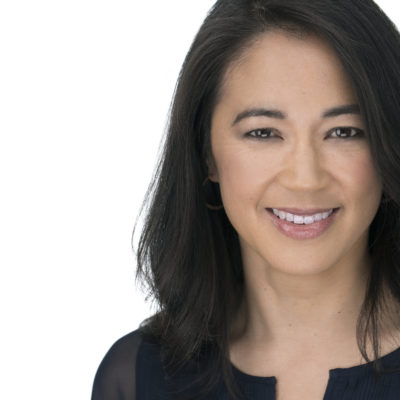
Felicia Wong, President and CEO, Roosevelt Institute
@FeliciaWongRI
As the President and CEO of the Roosevelt Institute, Felicia Wong directs the organization’s mission, vision, and strategy in pursuit of a high-care, low-carbon economy that works for all. She was the US representative on the G7 Economic Resilience Panel in 2021 and served on the Biden-Harris administration transition advisory board.
Full Bio
As the President and CEO of the Roosevelt Institute, Felicia Wong directs the organization’s mission, vision, and strategy in pursuit of a high-care, low-carbon economy that works for all. She was the US representative on the G7 Economic Resilience Panel in 2021 and served on the Biden-Harris administration transition advisory board.
Under her leadership, Roosevelt has grown more than fourfold, and now regularly works with the nation’s top public officials, academic experts, and progressive movement organizers. Her research focuses on post-neoliberal thought and the intersection of race, economics, and social stratification; and her work has appeared in the New York Times, the Washington Post, Time, Democracy: A Journal of Ideas, and the Boston Review. She is the co-author of the book The Hidden Rules of Race: Barriers to an Inclusive Economy (Cambridge University Press, 2017).
Prior to joining Roosevelt, Felicia ran investment services for the Democracy Alliance. She also ran operations and product development at a venture-funded, labor union-aligned education services company. Her public service includes a White House Fellowship in the Office of the Attorney General and a political appointment in the Office of the Secretary of the Navy. She serves on the boards of the Economic Security Project, Deep Springs College, and the immigration policy group America Is Better. Felicia holds a PhD in political science from the University of California, Berkeley. Her doctoral dissertation on the role of race and framing in K-12 public education politics received the 2000 American Political Science Association award in Race, Ethnicity, and Politics.
10:10 am – Session 1: Keynote and Conversation – The Climate Dimension
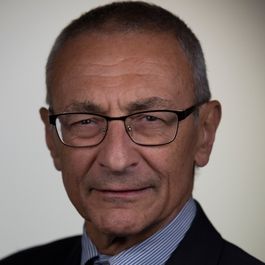
Keynote:
John Podesta, Senior Advisor to the President for Clean Energy Innovation and Implementation, Executive Office of the President
@johnpodesta
John Podesta is the Senior Advisor to President Biden for Clean Energy Innovation and Implementation since September 2022. He is the Founder and former Chair for the Washington, D.C-based think tank Center for American Progress and a Founder and former Chair of the Washington Center for Equitable Growth.
Full Bio
John Podesta is the Senior Advisor to President Biden for Clean Energy Innovation and Implementation since September 2022. He is the Founder and former Chair for the Washington, D.C-based think tank Center for American Progress and a Founder and former Chair of the Washington Center for Equitable Growth. Podesta served as counselor to President Barack Obama, where he was responsible for coordinating the administration’s climate policy and initiatives. In 2008, he served as co-chair of President Obama’s transition team. He was a member of the U.N. Secretary General’s High-Level Panel of Eminent Persons on the Post-2015 Development Agenda. Podesta previously served as White House chief of staff to President William J. Clinton. He chaired Hillary Clinton’s campaign for president in 2016. A Chicago native, Podesta is a graduate of Knox College and the Georgetown University Law Center, where he is currently a visiting professor of law.

Conversation Partner:
Felicia Wong, President and CEO, Roosevelt Institute
@FeliciaWongRI
As the President and CEO of the Roosevelt Institute, Felicia Wong directs the organization’s mission, vision, and strategy in pursuit of a high-care, low-carbon economy that works for all. She was the US representative on the G7 Economic Resilience Panel in 2021 and served on the Biden-Harris administration transition advisory board.
Full Bio
As the President and CEO of the Roosevelt Institute, Felicia Wong directs the organization’s mission, vision, and strategy in pursuit of a high-care, low-carbon economy that works for all. She was the US representative on the G7 Economic Resilience Panel in 2021 and served on the Biden-Harris administration transition advisory board.
Under her leadership, Roosevelt has grown more than fourfold, and now regularly works with the nation’s top public officials, academic experts, and progressive movement organizers. Her research focuses on post-neoliberal thought and the intersection of race, economics, and social stratification; and her work has appeared in the New York Times, the Washington Post, Time, Democracy: A Journal of Ideas, and the Boston Review. She is the co-author of the book The Hidden Rules of Race: Barriers to an Inclusive Economy (Cambridge University Press, 2017).
Prior to joining Roosevelt, Felicia ran investment services for the Democracy Alliance. She also ran operations and product development at a venture-funded, labor union-aligned education services company. Her public service includes a White House Fellowship in the Office of the Attorney General and a political appointment in the Office of the Secretary of the Navy. She serves on the boards of the Economic Security Project, Deep Springs College, and the immigration policy group America Is Better. Felicia holds a PhD in political science from the University of California, Berkeley. Her doctoral dissertation on the role of race and framing in K-12 public education politics received the 2000 American Political Science Association award in Race, Ethnicity, and Politics.
10:30 am – Session 2: Panel – The Paradigm Dimension
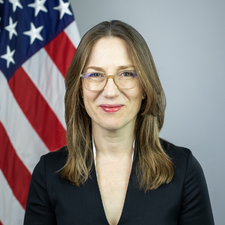
Panelist:
Heather Boushey, Member, Council of Economic Advisers
@hboushey46
Heather Boushey is a member of President Biden’s Council of Economic Advisers. Heather is co-founder of the Washington Center for Equitable Growth, where she was President and CEO from 2013 – 2020. She previously served as chief economist for Secretary Clinton’s 2016 transition team and as an economist for the Center for American Progress, the Joint Economic Committee of the U.S. Congress, the Center for Economic and Policy Research, and the Economic Policy Institute.

Panelist:
Felicia Wong, President and CEO, Roosevelt Institute
@FeliciaWongRI
As the President and CEO of the Roosevelt Institute, Felicia Wong directs the organization’s mission, vision, and strategy in pursuit of a high-care, low-carbon economy that works for all. She was the US representative on the G7 Economic Resilience Panel in 2021 and served on the Biden-Harris administration transition advisory board.
Full Bio
As the President and CEO of the Roosevelt Institute, Felicia Wong directs the organization’s mission, vision, and strategy in pursuit of a high-care, low-carbon economy that works for all. She was the US representative on the G7 Economic Resilience Panel in 2021 and served on the Biden-Harris administration transition advisory board.
Under her leadership, Roosevelt has grown more than fourfold, and now regularly works with the nation’s top public officials, academic experts, and progressive movement organizers. Her research focuses on post-neoliberal thought and the intersection of race, economics, and social stratification; and her work has appeared in the New York Times, the Washington Post, Time, Democracy: A Journal of Ideas, and the Boston Review. She is the co-author of the book The Hidden Rules of Race: Barriers to an Inclusive Economy (Cambridge University Press, 2017).
Prior to joining Roosevelt, Felicia ran investment services for the Democracy Alliance. She also ran operations and product development at a venture-funded, labor union-aligned education services company. Her public service includes a White House Fellowship in the Office of the Attorney General and a political appointment in the Office of the Secretary of the Navy. She serves on the boards of the Economic Security Project, Deep Springs College, and the immigration policy group America Is Better. Felicia holds a PhD in political science from the University of California, Berkeley. Her doctoral dissertation on the role of race and framing in K-12 public education politics received the 2000 American Political Science Association award in Race, Ethnicity, and Politics.
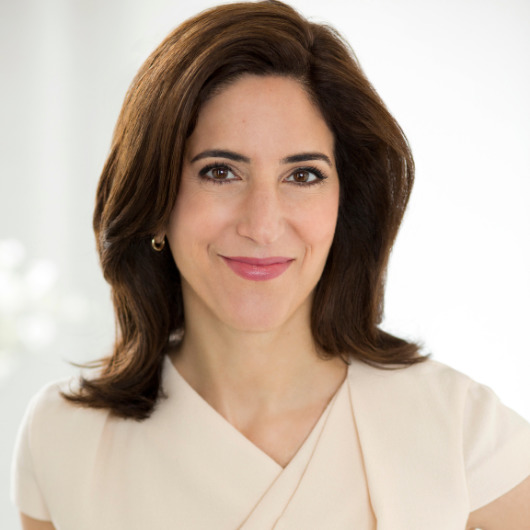
Moderator
Rana Foroohar, Business Columnist and Associate Editor, Financial Times
@RanaForoohar
Rana Foroohar is Global Business Columnist and an Associate Editor at the Financial Times. She is also CNN’s global economic analyst.
Full Bio
Rana Foroohar is Global Business Columnist and an Associate Editor at the Financial Times. She is also CNN’s global economic analyst.
Her first book, Makers and Takers: The Rise of Finance and the Fall of American Business (Crown), about why the capital markets no longer support business, was shortlisted for the Financial Times McKinsey Book of the Year award in 2016. Her second book, Don’t Be Evil: How Big Tech Betrayed Its Founding Principles And All of Us (Crown), was the Porchlight Business Book of the Year for 2019. Her new book, Homecoming: The Path to Prosperity in a Post Global World, will be published by Crown in October 2022.
In 2019, Foroohar was awarded a SABEW award for her tech and policy coverage at the Financial Times. Prior to joining the FT and CNN, Foroohar spent 6 years at TIME, as an assistant managing editor and economic columnist. She previously spent 13 years at Newsweek, as an economic and foreign affairs editor and a foreign correspondent covering Europe and the Middle East. During that time, she was awarded the German Marshall Fund’s Peter Weitz Prize for transatlantic reporting. She has also received awards and fellowships from institutions such as the Johns Hopkins School of International Affairs and the East West Center. She is a life member of the Council on Foreign Relations and sits on the advisory board of the Open Markets Institute.
Rana Foroohar graduated in 1992 from Barnard College, Columbia University. She lives in Brooklyn with her husband, the author John Sedgwick, and her two children.
11:10 am – Session 3: Keynote and Conversation – The Equity Dimension
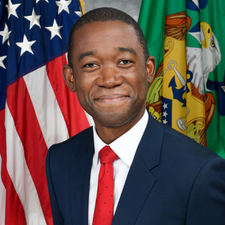
Keynote:
Wally Adeyemo, Deputy Secretary, Department of Treasury
@TreasuryDepSec
On March 26, 2021, Wally Adeyemo was sworn in as Deputy Secretary of the Treasury. He has been at the center of many of the country’s major economic policy decisions since the 2008 Financial Crisis and has worked in organizations across the public, private, and non-profit sectors to build a stronger and fairer economy.
Full Bio
On March 26, 2021, Wally Adeyemo was sworn in as Deputy Secretary of the Treasury. He has been at the center of many of the country’s major economic policy decisions since the 2008 Financial Crisis and has worked in organizations across the public, private, and non-profit sectors to build a stronger and fairer economy. As Deputy Secretary, Adeyemo serves as the Treasury Department’s number two official and chief operating officer and has taken a leading role in Treasury’s national security, economic inequality, and pandemic-related economic recovery work.
Adeyemo previously served at Treasury during the Obama Administration as Senior Advisor and Deputy Chief of Staff under Secretary Tim Geithner and Secretary Jack Lew. Adeyemo also served as the first Chief of Staff of the Consumer Financial Protection Bureau before moving to the Obama White House in 2015. At the White House, Adeyemo served as Deputy National Security Adviser for International Economics and a Deputy Director of the National Economic Council. In this role, Adeyemo led policymaking on international finance, trade and investment, energy, and environmental issues and served as President Obama’s representative to the G7 and G20.
After leaving government in 2017, Adeyemo served as the first president of the Obama Foundation and as a Senior Advisor at the Center for Strategic and International Studies and at BlackRock.
Adeyemo holds a B.A. from the University of California at Berkeley and a J.D. from Yale Law School.

Conversation Partner:
Brian Kettenring, Director of Economic and Society Initiative, William and Flora Hewlett Foundation
@bkettenring
Brian Kettenring is Director of the Economy and Society Initiative at the William and Flora Hewlett Foundation. He leads a five-year, $50 million grantmaking effort that aims to foster a new “common sense” about how the economy works, the aims it should serve, and how it should be structured to meet the biggest challenges our society faces.
Full Bio
Brian Kettenring is Director of the Economy and Society Initiative at the William and Flora Hewlett Foundation. He leads a five-year, $50 million grantmaking effort that aims to foster a new “common sense” about how the economy works, the aims it should serve, and how it should be structured to meet the biggest challenges our society faces.
Previously, he worked as a community organizer for more than 25 years, most recently as Co-Executive Director of the Center for Popular Democracy, where he helped lead the organization’s work building grassroots support for a resilient and just economy. Earlier in his career, he worked as an organizer with several organizations, working on issues of economic justice, education, civic engagement, and democracy.
In 2019, Brian co-founded a journal and community called The Forge: Organizing Strategy and Practice. He holds a bachelor’s degree in African and European intellectual history from Carleton College, and is currently pursuing a master’s degree in history at the University of Massachusetts at Boston, focusing on the relationship between social movements and worldview change. He lives in Alameda, California with his wife and their three children.
Remarks by Deputy Secretary of the Treasury Wally Adeyemo at the Roosevelt Institute's Industrial Policy Forum
Read Opens in new window11:30 am – Session 4: Panel – The Production Dimension
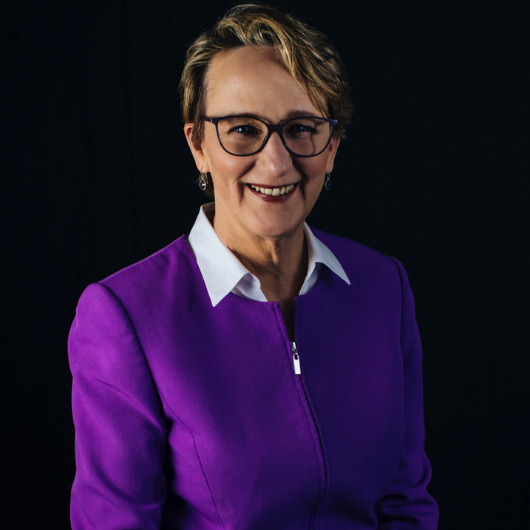
Panelist:
Mary Kay Henry, International President, Service Employees International Union
@MaryKayHenry
Mary Kay Henry is the International President of the 2 million-member Service Employees International Union (SEIU) and her leadership is rooted in a deep-seated belief that when Black, brown, Asian Pacific Islander, and white working people join together we can make the impossible possible.
Full Bio
Mary Kay Henry is the International President of the 2 million-member Service Employees International Union (SEIU) and her leadership is rooted in a deep-seated belief that when Black, brown, Asian Pacific Islander, and white working people join together we can make the impossible possible. Under her leadership, SEIU members have won major victories to improve the jobs of healthcare, property services, and public sector workers across the United States, Canada, and Puerto Rico. Henry’s decision to back the courageous fast-food workers and other service and care workers in the historic “Fight for $15 and a Union” movement has helped 24 million working Americans win wage increases.
In 2010, Mary Kay Henry became the first woman elected to lead SEIU. Since then, Fast Company magazine named her one of the 100 most creative leaders in the economy, Politico magazine named her one of the top 50 visionaries reshaping American politics, and in 2019 the governor of California tapped her to co-chair the state’s Future of Work Commission.
Henry believes that to build an inclusive, sustainable economy we need to empower all working people to join together in Unions for All to negotiate for family-sustaining jobs. Together, SEIU members are using our strength in numbers to fight for access to affordable, quality healthcare for all, a fair immigration process for new Americans and Canadians, and safety and justice for all families, no matter what our color or where we come from.

Panelist:
Maggie Lemmerman, Head of Federal Affairs, Ørsted, North America
@MaggieLemmerman
Maggie Lemmerman is the Head of Federal Affairs for Ørsted. In this position, she guides the company’s relationships with the Administration and Congress, with a focus on regulatory certainty and advancing policies that support the sustained, responsible growth of Ørsted’s offshore wind portfolio in the United States.
Full Bio
Maggie Lemmerman is the Head of Federal Affairs for Ørsted. In this position, she guides the company’s relationships with the Administration and Congress, with a focus on regulatory certainty and advancing policies that support the sustained, responsible growth of Ørsted’s offshore wind portfolio in the United States. Prior to joining Ørsted, Maggie was the Senior Director of Federal Affairs at the American Wind Energy Association, where she led much of the trade association’s Capitol Hill engagement on behalf of the association’s diverse membership. She also worked at the British Embassy in Washington as a Senior Policy Advisor on transatlantic energy issues, with a focus on offshore wind development and spent five years on Capitol Hill, working first for her hometown Congressman, Curt Weldon of Pennsylvania and later for Senator John Boozman of Arkansas on a variety of legislative issues, including energy and international affairs. Maggie hails from Media, Pennsylvania and graduated with a degree in Political Science from Columbia University.

Panelist:
Brad Markell, Executive Director, AFL-CIO Industrial Union Council
@DetroitGearhead
Brad Markell is the Executive Director of the AFL-CIO Industrial Union Council (IUC). The AFL-CIO is the national labor federation of the United States, with 58 affiliated unions representing 12.5 million workers. The IUC is the manufacturing arm of the AFL-CIO, with 12 unions representing over 1 million members directly in manufacturing.
Full Bio
Brad Markell is the Executive Director of the AFL-CIO Industrial Union Council (IUC). The AFL-CIO is the national labor federation of the United States, with 58 affiliated unions representing 12.5 million workers. The IUC is the manufacturing arm of the AFL-CIO, with 12 unions representing over 1 million members directly in manufacturing.
Brad also directs the federation’s climate and energy policy work at the national and international levels, including leading several labor delegations to UNFCCC meetings, and the AFL-CIO’s work with the Energy Future Initiative known as the Labor Energy Partnership.
Prior to joining the AFL-CIO Brad was on the staff of the United Auto Workers (UAW), where he represented the union during successive negotiations with the Obama administration on fuel-economy regulations. He led the UAW’s efforts to establish federal support for manufacturing clean vehicles in the United States, including the Advanced Technology Vehicle Manufacturers loan program administered by DOE. Brad is an experienced labor negotiator, and while at the UAW participated in several rounds of national bargaining in the automobile, aerospace and heavy-truck industries.
Brad’s board and committee service on behalf of the labor movement includes the Biden-Harris transition team, the Labor and Employment Relations Association, the National Academy of Engineering, the Information Technology and Innovation Foundation, the Carbon Capture Coalition, the Export-Import Bank Advisory Council, the International Labor Organization and the International Energy Agency.
Brad has degrees from the University of Michigan and Wayne State University. He joined the UAW in 1976, when he hired into General Motors, and is a proud member of UAW Local 14 in Toledo Ohio.
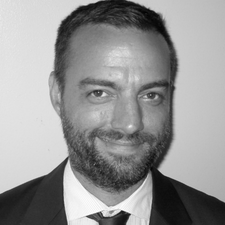
Panelist:
Todd N. Tucker, Director of Industrial Policy and Trade, Roosevelt Institute
@toddntucker
As Director of Industrial Policy and Trade, Dr. Tucker, a political scientist, helps lead Roosevelt’s work on the role of governance and institutions (both national and international) in facilitating economic transformation.
Full Bio
Todd N. Tucker is a political scientist and Director of Industrial Policy and Trade at the Roosevelt Institute, where he helps lead research on global governance, democracy, and the administrative state.
A recognized expert on trade and political economy, Dr. Tucker has testified before legislatures and expert committees around the world. His writing has been featured in Politico, Time Magazine, Democracy Journal, the Financial Times, and the Washington Post.
He is author of Judge Knot: Politics and Development in International Investment Law (Anthem Press, 2018), along with other academic research published by Cambridge University Press, Oxford University Press, and other publishers. Prior to his doctoral work, he led research on international issues for a number of DC think tanks and research organizations. He has authored over 70 major reports, including Fixing the Senate: Equitable and Full Representation for the 21st Century and Industrial Policy and Planning: What It Is and How to Do It Better.
A native of Louisville, Kentucky, Dr. Tucker received his BA from the George Washington University and his PhD and MPhil from the University of Cambridge, where he was a Gates Scholar. He has taught at Johns Hopkins University and the University of New Hampshire. He lives in Washington, DC.
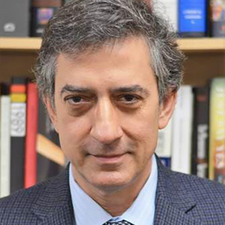
Moderator
Michael Tomasky, Editor, The New Republic and Democracy: A Journal of Ideas
@mtomasky
Michael Tomasky is editor of The New Republic, appointed to the position in April 2021. He is also editor of Democracy: A Journal of Ideas, a position he has held since 2009.
Full Bio
Michael Tomasky is editor of The New Republic, appointed to the position in April 2021. He is also editor of Democracy: A Journal of Ideas, a position he has held since 2009. He is a regular contributor to The New York Review of Books. He is the author of five books, including The Middle Out: The Rise of Progressive Economics and a Return to Shared Prosperity, just out from Doubleday. He grew up in Morgantown, West Virginia and has degrees from West Virginia University and New York University.. He lives in Rockville, Maryland with his wife and daughter.
12:00pm – Lunch
12:40 pm – Session 5: Panel – The Implementation Dimension
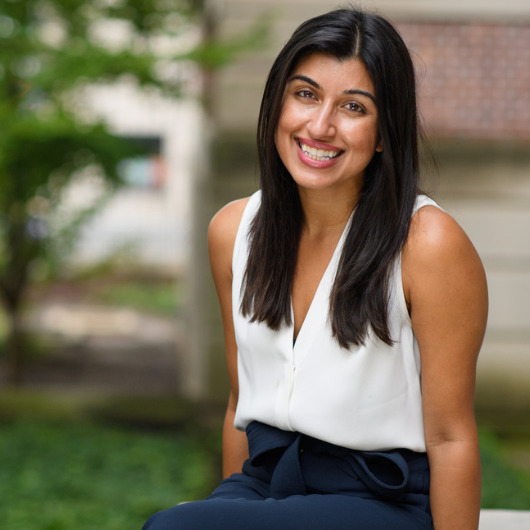
Panelist:
Natasha Sarin, Counselor for Tax Policy and Implementation, Department of Treasury
@NatashaRSarin
Natasha Sarin is a Counselor for Tax Policy and Implementation at the Treasury Department, where she has taken a leading role in the Administration’s IRS modernization efforts.
Full Bio
Natasha Sarin is a Counselor for Tax Policy and Implementation at the Treasury Department, where she has taken a leading role in the Administration’s IRS modernization efforts. She joined Treasury as a Deputy Assistant Secretary for Economic Policy from the University of Pennsylvania, where she is on leave as an Assistant Professor of Law at the University of Pennsylvania Carey Law School and an Assistant Professor of Finance at the Wharton School of Business. Her research and teaching interests lie in the areas of public finance and financial regulation. In recent years, Sarin has published numerous papers on tax policy, with particular focus on how improving tax compliance will raise substantial revenue and create a more equitable tax system. Her other work spans multiple aspects of finance, including household finance, insurance, and macroprudential risk management. Sarin’s research has been published in top economics and legal journals, and she regularly contributes to economic policy debates through work with the Hamilton Project, the Brookings Institution, and popular commentary in outlets such as The Washington Post and The New York Times. She received a Bachelor of Arts from Yale University, a Juris Doctor from Harvard Law School, and a Ph.D. in economics from Harvard University.
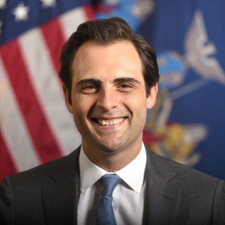
Panelist:
Mike Schmidt, Director, CHIPS Program Office, Department of Commerce
@mikereedschmidt
Mike Schmidt most recently served as a Senior Advisor at the Treasury Department. At Treasury, he managed implementation of the Child Tax Credit program in the American Rescue Plan, which provided monthly payments to more than 37 million families and lifted more than 3 million children out of poverty.
Full Bio
Mike Schmidt most recently served as a Senior Advisor at the Treasury Department. At Treasury, he managed implementation of the Child Tax Credit program in the American Rescue Plan, which provided monthly payments to more than 37 million families and lifted more than 3 million children out of poverty. Prior to joining Treasury, Schmidt served as the Commissioner of the New York State Department of Taxation and Finance, which oversees the state’s tax system and collects more than $100 billion in revenue annually. Before then, Schmidt served as Deputy Secretary for economic development in New York, where he oversaw policy and operations for 12 state agencies and authorities covering economic development, housing, and tax. Schmidt previously served in the Office of Domestic Finance at the U.S. Treasury Department and as a financial analyst at the Yale Investments Office.
He holds a J.D. and a B.A. from Yale.
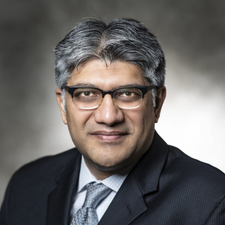
Panelist:
Jigar Shah, Director, Loan Program Office, Department of Energy
@JigarShahDC
Jigar Shah was most recently co-founder and President at Generate Capital, where he focused on helping entrepreneurs accelerate decarbonization solutions through the use of low-cost infrastructure-as-a service financing.
Full Bio
Jigar Shah was most recently co-founder and President at Generate Capital, where he focused on helping entrepreneurs accelerate decarbonization solutions through the use of low-cost infrastructure-as-a service financing. Prior to Generate Capital, Shah founded SunEdison, a company that pioneered “pay as you save” solar financing. After SunEdison, Shah served as the founding CEO of the Carbon War Room, a global non-profit founded by Sir Richard Branson and Virgin Unite to help entrepreneurs address climate change. Originally from Illinois, Shah holds a B.S. from the University of Illinois-UC and an MBA from the University of Maryland College Park.
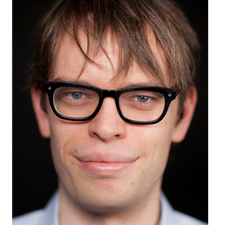
Moderator:
Dylan Matthews, Senior Correspondent, Vox
@dylanmatt
Dylan Matthews is a writer at Vox, which he joined as one of its first three employees in 2014. He cofounded Vox’s Future Perfect section in 2018. He writes about developments in social science, anti-poverty efforts in the US and abroad, and debates about the right way to do philanthropy.
1:20 pm – Session 6: Keynote and Conversation – The Trade Dimension
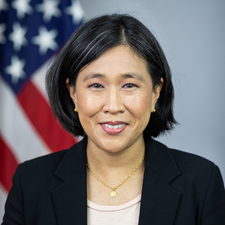
Keynote:
Ambassador Katherine Tai, US Trade Representative
@AmbassadorTai
Ambassador Katherine Tai was sworn in as the 19th United States Trade Representative on March 18, 2021. As a member of the President’s Cabinet, Ambassador Tai is the principal trade advisor, negotiator, and spokesperson on U.S. trade policy.
Full Bio
Ambassador Katherine Tai was sworn in as the 19th United States Trade Representative on March 18, 2021. As a member of the President’s Cabinet, Ambassador Tai is the principal trade advisor, negotiator, and spokesperson on U.S. trade policy.
Prior to her unanimous Senate confirmation, Ambassador Tai spent most of her career in public service focusing on international economic diplomacy, monitoring, and enforcement. She previously served as Chief Trade Counsel and Trade Subcommittee Staff Director for the House Ways and Means Committee in the United States Congress. In this capacity, Ambassador Tai played a pivotal role in shaping U.S. trade law, negotiations strategies, and bilateral and multilateral agreements, including the recently re-negotiated United-States-Mexico-Canada Agreement.
Ambassador Tai is an experienced World Trade Organization (WTO) litigator. She previously developed and tried cases for the Office of the United States Trade Representative, eventually becoming the Chief Counsel for China Trade Enforcement. Before transitioning to federal service, she practiced law in the private sector, clerked for district judges, and taught English in Guangzhou, China.
Ambassador Tai earned a Bachelor of Arts degree in history from Yale University and a Juris Doctor from Harvard Law School. She is fluent in Mandarin.
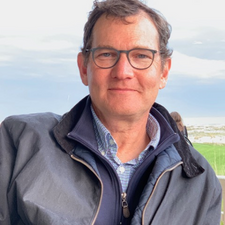
Conversation Partner:
Mike Kubzansky, CEO, Omidyar Network
@MikeKubzansky
Mike was appointed CEO of Omidyar Network in March 2018 after successfully leading the firm’s Intellectual Capital practice, a function he established when he joined the firm in 2013.
Full Bio
Mike was appointed CEO of Omidyar Network in March 2018 after successfully leading the firm’s Intellectual Capital practice, a function he established when he joined the firm in 2013.
Under Mike’s leadership, he has transformed the social change venture to focus “upstream” on three of the critical 21st century disruptions that have the greatest impact on people’s lives: the economy, digital technology, and demographic change, with the goal of channeling these disruptions into well-being for the many, not just the few. These three areas have been a through line in his career, as has his work across public, private, and nonprofit sectors in emerging and developed markets.
His prior work on digital technology spans a range of settings from telecom start-up to a partner at Monitor Group (now Monitor Deloitte) to Omidyar Network’s investment committee. Across them all, Mike’s goal has been to harness, explore, and understand the continuum of technology’s impact, from the promise of increased access to services via mobile phones, digital identity, and other innovations to the threats that trample on privacy, competition, and democracy.
His prior work on economic issues is similarly broad, whether at World Bank/IFC covering East Asia, consulting on financial and other economic inclusion topics, microcredit and transport in Africa, or community economic development in US cities from Chicago to Flint to Philadelphia.
Mike also taught a class at Johns Hopkins SAIS on impact investing and serves as a member of the Board for the US Impact Investing Alliance.
His writing on a range of topics has been featured in more than a dozen publications, including Harvard Business Review, Stanford Social Innovation Review, and Barron’s, and has been quoted extensively in philanthropic, business, and general news outlets.
He began his career in US politics, as a field organizer on Michael Dukakis’ 1988 presidential campaign and later in the Massachusetts State Senate.
Mike earned his MBA from the Kellogg School of Management at Northwestern University and a bachelor’s degree from Brown University. He is on the board of Norrsken Foundation, a Swedish organization that helps entrepreneurs solve the world’s greatest challenges. He lives in Washington, D.C., with his wife and golden retriever, and eagerly receives occasional visits from his two adult children.
Remarks by Ambassador Katherine Tai at the Roosevelt Institute's Industrial Policy Forum
Read Opens in new window1:40 pm – Parting Words
We invite you to tweet out highlights from the event using the hashtag #IndustrialPolicy2022 and tagging @rooseveltinst.
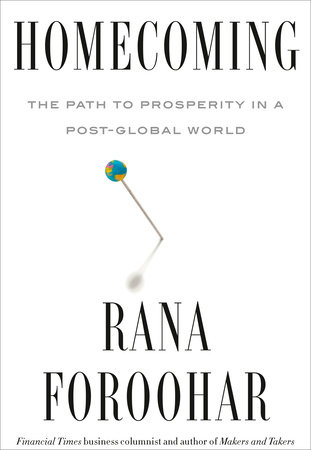
Homecoming
The Path to Prosperity in a Post-Global World
By Rana Foroohar
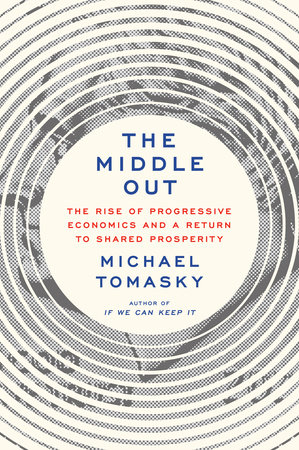
The Middle Out
The Rise of Progressive Economics and a Return to a Shared Prosperity
By Michael Tomasky
Event Co-Sponsors
William and Flora Hewlett Foundation is a nonpartisan, private charitable foundation that advances ideas and supports institutions to promote a better world.
